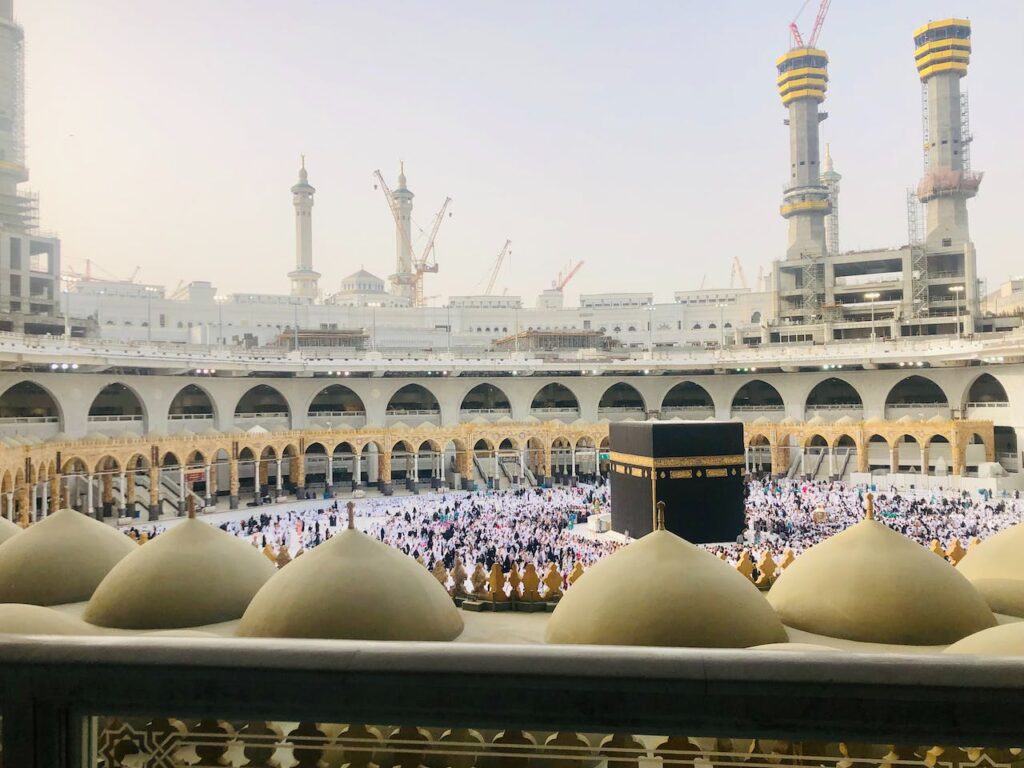Read Quran during Tawaf is a topic that has been discussed by scholars and practiced differently in various countries.
Can You Read Quran During Tawaf?
Yes you can, but Let’s explore the different views and practices associated with reading the Quran during Tawaf:
Firstly, The Views of Different Scholars
According to some scholars, it is permissible to read the Quran during Tawaf as long as it does not distract the person from focusing on Tawaf itself; They argue
that reciting the Quran can enhance the spiritual experience and help the individual connect with Allah on a deeper level.
On the other hand, other scholars believe that reading the Quran while Tawaf is not recommended;
They argue that Tawaf requires complete concentration and devotion to Allah, and reading the Quran may divert the person’s attention away from the rituals.
These scholars advise focusing solely on the act of Tawaf and saving the recitation of the Quran for other times.
Secondly, The Practice in Different Countries
The practice of reading the Quran while Tawaf varies among different countries and cultures;
In some countries, it is common for individuals to carry a small Quran with them while Tawaf and recite it while walking around the Kaaba.
This practice is seen as a way to combine the act of Tawaf with the recitation of the Quran.
In other countries, however, the emphasis is placed on giving full attention to the act of Tawaf itself.
Individuals are discouraged from reading the Quran while Tawaf and are advised to focus solely on their devotion to Allah without any distractions.
Rules For Reading Quran During Tawaf
If someone chooses to read the Quran while Tawaf, it is important to follow certain rules and precautions, for example:
- Respectfully holding the Quran and keeping it clean.
- Ensuring that the recitation does not distract from the act of Tawaf or hinder the movement of other pilgrims.
- Being mindful of the surroundings and maintaining a sense of reverence and focus during the recitation.
- Understanding the meaning of the verses being recited and reflecting upon their significance.
- Respecting the sanctity of the Kaaba and adhering to the rules and regulations set by the authorities.
- Avoid excessive loudness in the recitation, as it may disturb the tranquility of the sacred space.
- Adhering to any specific guidelines or rules set by the authorities of the mosque or during the pilgrimage.
By following these rules, individuals can maintain the sanctity of the Tawaf while incorporating the recitation of the Quran into their spiritual experience.
It is important to note that these rules and precautions are meant to ensure that the act of
reading the Quran while Tawaf is done with the utmost respect and reverence, Muslims should always prioritize the significance
of Tawaf itself and avoid any actions that may distract from the devotion and focus required during this ritual.
Overall, the recitation of the Quran while Tawaf can be a spiritually enriching experience if
performed with sincerity, mindfulness, and respect for the significance of both the act of Tawaf and the words of Allah.
Key Takeaways
- Tawaf is an integral part of the Hajj and Umrah pilgrimages, involving circling the Kaaba in Mecca.
- The Quran is the holy book of Islam and holds immense importance in the lives of Muslims.
- Tawaf symbolizes unity, devotion, and the believer’s journey through life.
- Opinions on reading the Quran during Tawaf vary among scholars and practices differ in different countries.
- Precautions should be taken when reading the Quran during Tawaf, such as holding the Quran respectfully and not distracting others.
- While there are different perspectives on reading the Quran while Tawaf, it is important to approach this act with reverence, respect, and mindfulness,
By following the guidelines and seeking guidance from knowledgeable scholars.
In Conclusion,
The question of whether or not you can read the Quran during Tawaf is a matter of interpretation and practice,
While some scholars permit it as a way to enhance the spiritual experience, others advise focusing solely on the act of Tawaf itself.
In addition, It is important to note that both views and practices have their justifications and are based on
the interpretations of Islamic teachings by different scholars, so Muslims should consult their local scholars or religious authorities;
to understand the specific guidelines and practices followed in their respective communities.





